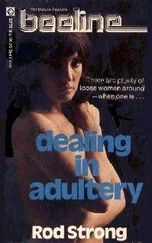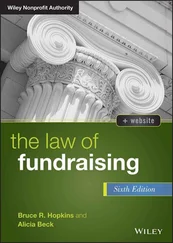(c) It is unjust to deny to inspired Scripture the right exercised by all historians of introducing certain documents and sayings as simply historical, while their complete truthfulness is neither vouched for nor denied.
An instance in point is the letter of Claudius Lysias in Acts 23:26–30 —a letter which represents his conduct in a more favorable light than the facts would justify—for he had not learned that Paul was a Roman when he rescued him in the temple ( Acts 21:31–33; 22:26–29 ). An incorrect statement may be correctly reported. A set of pamphlets printed in the time of the French Revolution might be made an appendix to some history of France without implying that the historian vouched for their truth. The sacred historians may similarly have been inspired to use only the material within their reach, leaving their readers by comparison with other Scriptures to judge of its truthfulness and value. This seems to have been the method adopted by the compiler of 1 and 2 Chronicles . The moral and religious lessons of the history are patent, even though there is inaccuracy in reporting some of the facts. So the assertions of the authors of the Psalms cannot be taken for absolute truth. The authors were not sinless models for the Christian—only Christ is that. But the Psalms present us with a record of the actual experience of believers in the past. It has its human weakness, but we can profit by it, even though it expresses itself at times in imprecations. Jeremiah 20:7—“O lord, thou hast deceived me” —may possibly be thus explained.
9. Sceptical or fictitious Narratives.
(a) Descriptions of human experience may be embraced in Scripture, not as models for imitation, but as illustrations of the doubts, struggles, and needs of the soul. In these cases inspiration may vouch, not for the correctness of the views expressed by those who thus describe their mental history, but only for the correspondence of the description with actual fact, and for its usefulness as indirectly teaching important moral lessons.
The book of Ecclesiastes, for example, is the record of the mental struggles of a soul seeking satisfaction without God. If written by Solomon during the time of his religious declension, or near the close of it, it would constitute a most valuable commentary upon the inspired history. Yet it might be equally valuable, though composed by some later writer under divine direction and inspiration. H. P. Smith, Bib. Scholarship and Inspiration, 97—“To suppose Solomon the author of Ecclesiastes is like supposing Spenser to have written In Memoriam.” Luther, Keil, Delitzsch, Ginsburg, Hengstenberg all declare it to be a production of later times (330 BC). The book shows experience of misgovernment. An earlier writer cannot write in the style of a later one, though the later can imitate the earlier. The early Latin and Greek Fathers quoted the Apocryphal Wisdom of Solomon as by Solomon; see Plumptre, Introd. to Ecclesiastes, in Cambridge Bible. Gore, in Lux Mundi, 355—“Ecclesiastes, though like the book of Wisdom purporting to be by Solomon, may be by another author. … ‘A pious fraud’ cannot be inspired; an idealizing personification, as a normal type of literature, can be inspired.” Yet Bernhard Schäfer, Das Buch Koheleth, ably maintains the Solomonic authorship.
(b) Moral truth may be put by Scripture writers into parabolic or dramatic form, and the sayings of Satan and of perverse men may form parts of such a production. In such cases, inspiration may vouch, not for the historical truth, much less for the moral truth of each separate statement, but only for the correspondence of the whole with ideal fact; in other words, inspiration may guarantee that the story is true to nature, and is valuable as conveying divine instruction.
It is not necessary to suppose that the poetical speeches of Job's friends were actually delivered in the words that have come down to us. Though Job never had had a historical existence, the book would still be of the utmost value, and would convey to us a vast amount of true teaching with regard to the dealings of God and the problem of evil. Fact is local; truth is universal. Some novels contain more truth than can be found in some histories. Other books of Scripture, however, assure us that Job was an actual historical character ( Ez. 14:14 ; James 5:11 ). Nor is it necessary to suppose that our Lord, in telling the parable of the Prodigal Son ( Luke 15:11–32 ) or that of the Unjust Steward ( 16:1–8 ), had in mind actual persons of whom each parable was an exact description.
Fiction is not an unworthy vehicle of spiritual truth. Parable, and even fable, may convey valuable lessons. In Judges 9:14, 15 , the trees, the vine, the bramble, all talk. If truth can be transmitted in myth and legend, surely God may make use of these methods of communicating it, and even though Gen. 1–3 were mythical it might still be inspired. Aristotle said that poetry is truer than history. The latter only tells us that certain things happened. Poetry presents to us the permanent passions, aspirations and deeds of men which are behind all history and which make it what it is; see Dewey, Psychology, 197. Though Job were a drama and Jonah an apologue, both might be inspired. David Copperfield, the Apology of Socrates, Fra Lippo Lippi, were not the authors of the productions which bear their names, but Dickens, Plato and Browning, rather. Impersonation is a proper method in literature. The speeches of Herodotus and Thucydides might be analogues to those in Deuteronomy and in the Acts, and yet these last might be inspired.
The book of Job could not have been written in patriarchal times. Walled cities, kings, courts, lawsuits, prisons, stocks, mining enterprises, are found in it. Judges are bribed by the rich to decide against the poor. All this belongs to the latter years of the Jewish Kingdom. Is then the book of Job all a lie? No more than Bunyan's Pilgrim's Progress and the parable of the Good Samaritan are all a lie. The book of Job is a dramatic poem. Like Macbeth or the Ring and the Book, it is founded in fact. H. P. Smith, Biblical Scholarship and Inspiration, 101—“The value of the book of Job lies in the spectacle of a human soul in its direst affliction working through its doubts, and at last humbly confessing its weakness and sinfulness in the presence of its Maker. The inerrancy is not in Job's words or in those of his friends, but in the truth of the picture presented. If Jehovah's words at the end of the book are true, then the first thirty-five chapters are not infallible teaching.”
Gore, in Lux Mundi, 355, suggests in a similar manner that the books of Jonah and of Daniel may be dramatic compositions worked up upon a basis of history. George Adam Smith, in the Expositors' Bible, tells us that Jonah flourished 780 BC, in the reign of Jeroboam II. Nineveh fell in 606. The book implies that it was written after this ( 3:3 —“Nineveh was an exceeding great city”). The book does not claim to be written by Jonah, by an eye-witness, or by a contemporary. The language has Aramaic forms. The date is probably 300 BC There is an absence of precise data, such as the sin of Nineveh, the journey of the prophet thither, the place where he was cast out on land, the name of the Assyrian king. The book illustrates God's mission of prophecy to the Gentiles, his care for them, their susceptibility to his word. Israel flies from duty, but is delivered to carry salvation to the heathen. Jeremiah had represented Israel as swallowed up and cast out ( Jer. 51:34, 44 sq.—“Nebuchadnezzar the king of Babylon hath devoured me … he hath, like a monster, swallowed me up, he hath filled his maw with my delicacies; he hath cast me out. … I will bring forth out of his mouth that which he hath swallowed up.” ) Some tradition of Jonah's proclaiming doom to Nineveh may have furnished the basis of the apologue. Our Lord uses the story as a mere illustration, like the homiletic use of Shakespeare's dramas. “As Macbeth did,” “As Hamlet said,” do not commit us to the historical reality of Macbeth or of Hamlet. Jesus may say as to questions of criticism: “Man, who made me a judge or a divider over you?” “I came not to judge the world, but to save the world” (Luke 12:14; John 12:47) . He had no thought of confirming, or of not confirming, the historic character of the story. It is hard to conceive the compilation of a psalm by a man in Jonah's position. It is not the prayer of one inside the fish, but of one already saved. More than forty years ago President Woolsey of Yale conceded that the book of Jonah was probably an apologue.
Читать дальше












